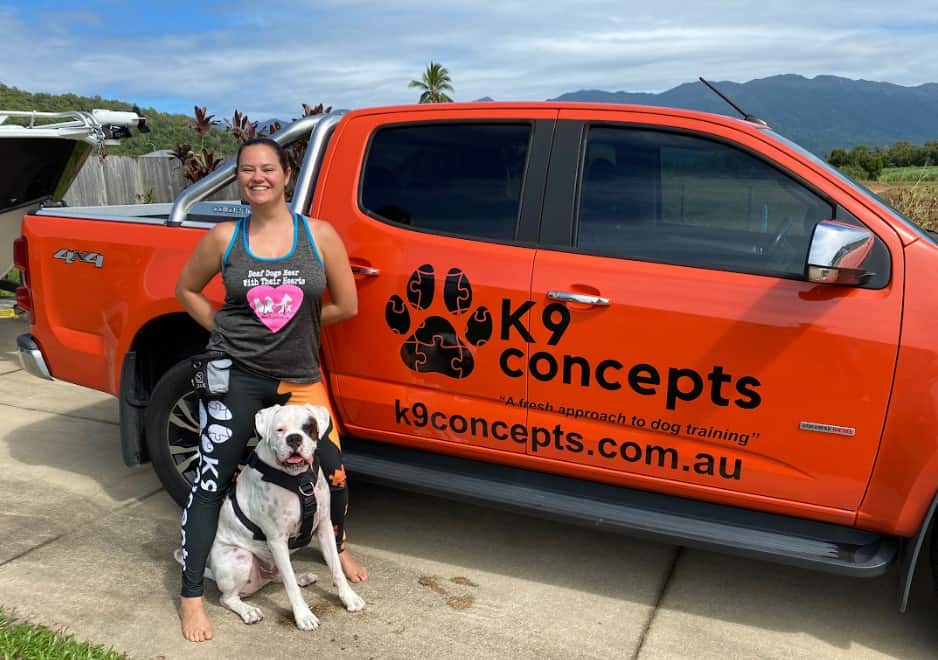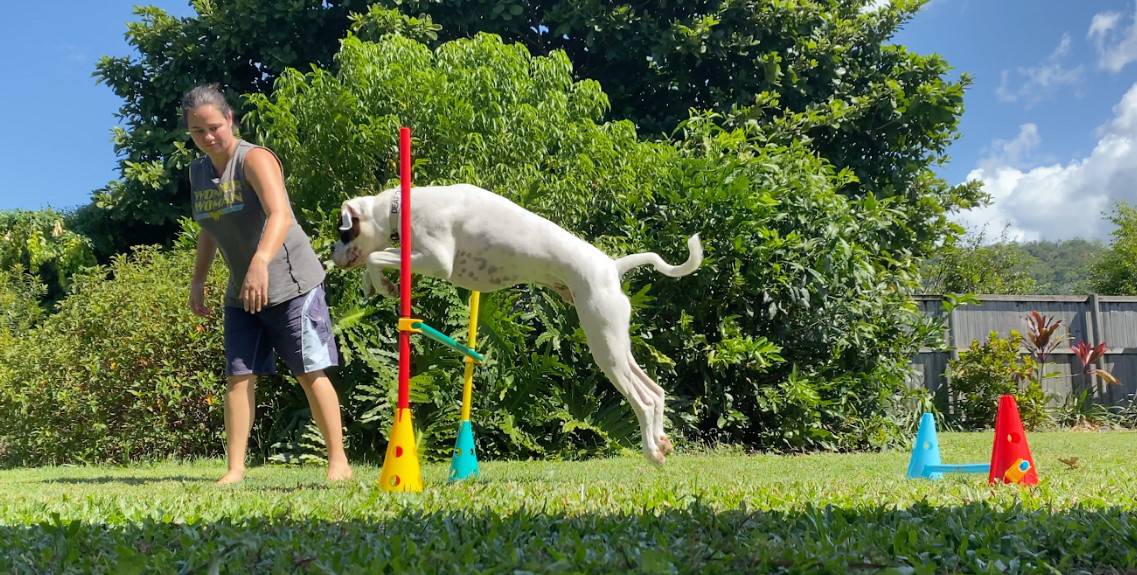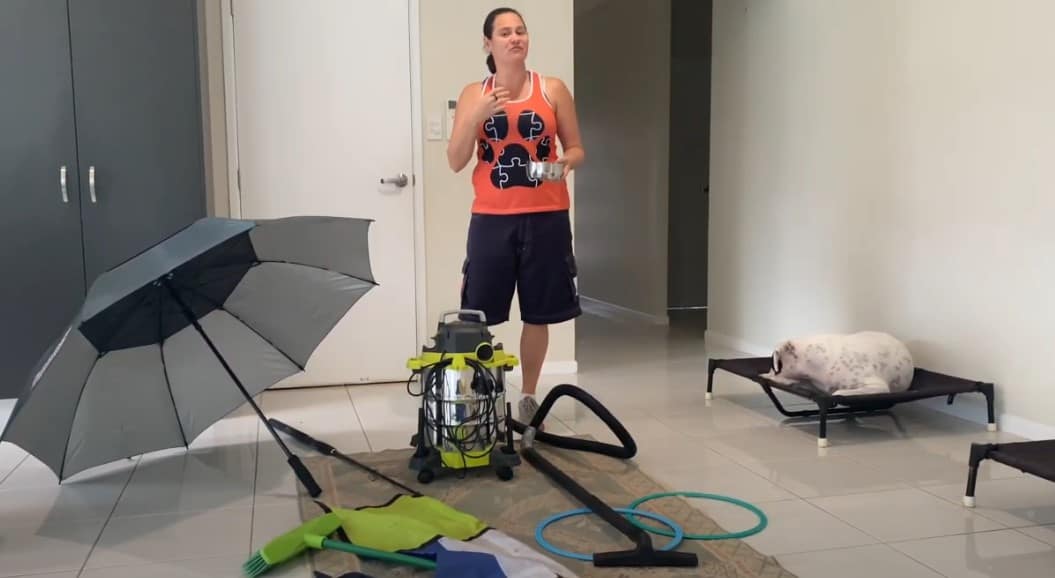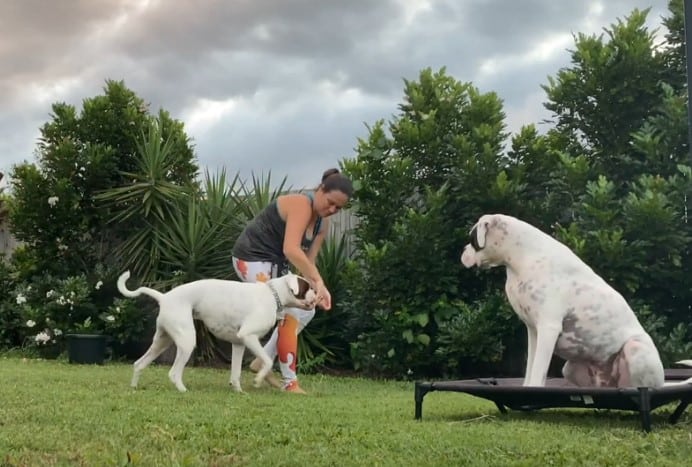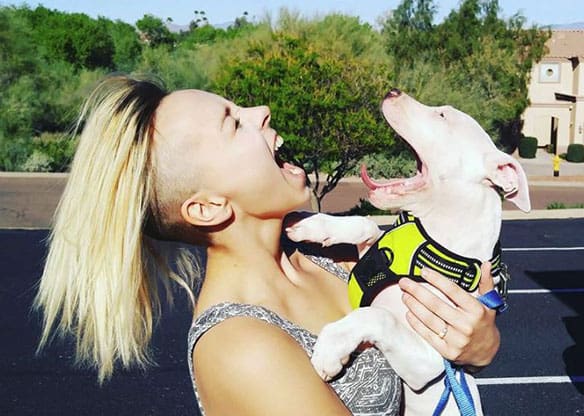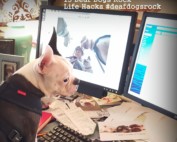Games-based concept training for deaf dogs by Natalie Rogers
What is concept training?
Concept training focuses on how dogs perceive and respond to the world around them. Veterinary behaviorist Dr Tom Mitchell refers to concept training as “reshaping the brain”1.
Rather than focusing on individual behaviors like “sit”, we grow concepts like:
Optimism2 (when faced with a new/novel/strange situation, the dog views this as a good thing, not a scary thing),
Disengagement (there is value in walking away from things that they want or things that are scary – that squirrel/dog/visitor is “none of my business”),
Flexibility (being able to respond in different ways to the same situation),
Proximity (hanging out close to my human is valuable, even when out and about),
Thinking in arousal (when the dog is very excited, can they still respond to known cues?),
Arousal up/arousal down (after we’ve got them excited, can they quickly calm themselves back down again all on their own?)
Calmness (unless cued otherwise, will this dog choose calm behaviors?),
Body awareness (can this dog use their body safely and efficiently? Do they understand where their limbs are in space to balance, avoid obstacles and protect themselves from injury?)
Impulse control (there is value in resisting something very, very tempting)
Tolerance of frustration (can the dog stay calm when the reward is not delivered immediately?)
Grit (the ability to persist, try something different and not give up even when the reward is delayed or the situation is confusing),
and many, many more!
We grow these concepts by playing games. The games are set up so that the dog makes choices all on their own. What this means is that, right from the very beginning, dogs are getting practice at making good choices and taking responsibility for themselves. They’re not being told what to do. They are empowered to make the desired choice all on their own.
Photo above: Set up to get ready to play the Novelty Game.
This makes games-based concept training perfect for deaf dogs because a lack of hearing is no obstacle. There is no “wrong” way to play a game! Even when a game doesn’t go according to plan, there is no catastrophically bad consequence – it’s all just information. We can always adjust the game and try again.
We train FOR the situation, not IN the situation.
What does this look like in practice? If a dog barks and lunges at other dogs because they’re afraid, traditional training would often set the dog up so they could view other dogs at a distance and then reward any and all calm behaviors. Parallel walking is a prime example of this. They’re training IN the situation.
Concept training approaches this struggle differently. Dogs who fear other dogs will likely also fear other situations, particularly novelty. These dogs lack optimism. They interpret unusual and ambiguous situations as bad. Strange = scary!
These dogs also struggle with disengagement – they do not see value in moving away from things that are scary (and probably also things they want!).
Photo above: Working on Disengagement Game
As concept trainers, we’d be playing games that teach this dog that new and strange situations are nothing to worry about. We’d also be practicing disengagement games to teach this dog that ignoring, turning around and walking away are all valuable options.
Most importantly, we play these games AWAY from the situation where the struggle is occurring. We start these games at home where the dog is comfortable. Only after the dog’s brain is capable of making good choices in a variety of games (which function as analogous situations to the struggle), in a variety of locations, only then do we reintroduce the “trigger” and it’s always at a distance where the dog can still succeed.
Preparing the dog for the situation greatly reduces stress and risk for both the dog and their human because dogs are not being put in situations where they don’t have the skills to cope. Because dogs are not being exposed to situations they can’t cope with, they’re also not practicing all those behaviors that us humans find unpleasant like barking, nipping, jumping, running off, pulling on lead etc. So, when dogs do see the situation again, they’re already equipped with skills they need to make better choices all on their own. Those choices can then be reinforced.
We train FOR the situation, not IN the situation.
How to get started with games
A couple of great games that build optimism and disengagement are Novelty Party and The Disengagement Game:
Novelty Party
The Disengagement Game
Where to go for more information?
If you’d like to see more games in action head to www.k9concepts.com.au where you find the K9 Puzzle Blog and a range of online courses (starring Havoc the deaf boxer!).
You can also find me on our Facebook page https://www.facebook.com/K9ConceptsDogTraining – send me a message if you have any questions about games-based concept training or adapting games to suit deaf dogs!
Natalie ☺
About Natalie
Natalie has a PhD in Biological Science, and a Bachelor of Science degree with a Major in Psychology and a Minor in Zoology. Her research focuses on “trial and error” learning and behavioral chains. She has taught biology and psychology at the University of New South Wales for over a decade and currently lectures on anxiety, stress and animal learning. She has been formally recognised as an Education Focused academic.
Natalie has been awarded her Pro Dog Trainer and Geek certificates through absolute Dogs and plays games every day with her deaf boxer Havoc and her hearing boxer Kaos. They adore agility, trick training and frisbee. Their favorite games are You Spin Me Right ‘Round Baby, Magic Hand and The Turkey Game.
References
Mitchell, T. (2017). How to be a concept trainer: Shaping You Dog’s Personality Through Games. Corpus Publishing Limited.
Mendl, M., Burman, O.H.P., Parker, R.M.A., Paul, E.S. (2009). Cognitive bias as an indicator of animal emotion and welfare: Emerging evidence and underlying mechanisms, Applied Animal Behaviour Science, 118, 161-181.

